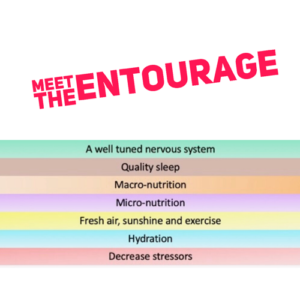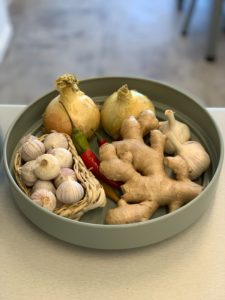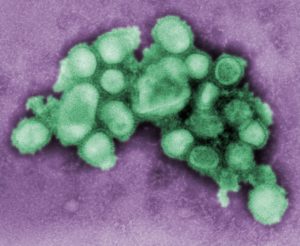 Mums have been asking me, “Jen are you worried about you or your kids getting the Coronavirus?”
Mums have been asking me, “Jen are you worried about you or your kids getting the Coronavirus?”
And I can wholeheartedly say, “No.”
I’m not coming from a place of arrogance. Nor naivety.
I’m coming from a place of understanding how the immune system works and what it needs to be healthy. In service of you, I’ve outlined 7 things I regularly focus on with my family (and harp on about if I feel like one of them is becoming immune challenged.)
In our modern world when you are trying to boost the immune system these 7 steps work best altogether. Think of them as an entourage.
Remember pills and potions that we swallow, inhale or inject are not an insurance policy. The only insurance you have is the “assurance” that you’ve been investing in your health so work these 7 into your routine regularly, even when you feel as ‘fit as a fiddle.’
I am not suggesting these steps will 100% prevent the contraction of COVID-19 or any virus, they do however supporting your immune system is just like investing in home-land security.
If you or your kids have been burning the candle at both ends learn to tune in when your body is asking you to: help it get back into balance with an adjustment or when it needs you to ramp up the nutrition, the fresh air, or have some downtime and extra sleep.
 Here’s some rationale:
Here’s some rationale:
1.GET ADJUSTED
As you probably know your nervous system is your master controller. Instructions are sent via your nerves to every cell and organ of the body so that your nervous system can govern every bodily function from respiration to immune responses. To your bathroom habits, your thoughts, and energy levels. Clearly, we want our nervous system – firing on all cylinders.
Chiropractors are experts in the care of the spine and the nervous system and are trained to detect subluxations. A subluxation is when a joint of the spine is not moving correctly, upsetting the communication of nerve messages. This is not a good thing and when left uncorrected can start to compromise your health and wellbeing.1, 2
With adjustments of the spine Chiropractors aim to support the natural defence systems of the body. Seeing’s as we are talking about immune strength here’s an interesting study published in the Journal of Chiropractic and Osteopathy in 2010.3 Teodorczyk-Injeyan took 74 age healthy asymptomatic subjects (so people with no symptoms) and randomly assigned them into three groups.
- Group 1 was the venipuncture (where a vein is punctured for blood sampling or infusion) control group.
- Group 2 received a spinal manipulative treatment (what adjustments are referred to in scientific studies) without “popping” (cavitation).
- Group 3 received a spinal manipulative treatment with “popping” (cavitation).
Blood samples were obtained from the subjects before, at 20 minutes after, and at two hours post-treatment to determine the levels of immunoglobulin G and immunoglobulin M production. Immunoglobulins are antibodies that act as defenders for the body.
RESULTS:
The production of interleukin-two induced Immunoglobulin G and immunoglobulin M was significantly increased in cultures from subjects treated with spinal manipulation.
At 20 minutes post manipulation, immunoglobulin G synthesis was significantly elevated in subjects who received manipulation with cavitation, relative to subjects in the control group.
 At 2 hours post-treatment, immunoglobulin M synthesis was significantly elevated in subjects who received manipulation relative to the control group.
At 2 hours post-treatment, immunoglobulin M synthesis was significantly elevated in subjects who received manipulation relative to the control group.
In conclusion, the authors suggest that spinal manipulative treatment increases antibody synthesis, influencing interleukin-2 regulated biological processes. Note that this is only one study and more studies are needed to demonstrate if chiropractic adjustments consistently impact the immune system in this way.
Remember chiropractic is not a cure-all for all immune issues. That’s not what I’m saying. Click here to understand more. This study, however, helps to explain why chiropractic plays a role in immune-boosting strategies for both children and adults.
2. QUALITY SLEEP
Not giving your body proper rest can weaken your immunity by reducing cytokines (proteins that target inflammation and infection). Chronic sleep deprivation and disruption of the sleep-wake cycle cause an activation of the inflammatory immune response. Lack of sleep decreases the activity of T-cells (a crucial type of immune cell).
Studies of identical twins show that the sleep-deprived ones had increased inflammation markers and worse immune markers. Watson4 used co-twin studies and found that consistent short sleep cycles dysregulated the immune system and is associated with adverse metabolic, cardiovascular, and inflammatory effects.
Research5 also shows that the improvement of sleep quality may be a key factor in the process of treatment of many psychiatric disorders, like schizophrenia, affective disorders, addictions and different forms of dementia which have been found to be associated with sleep disturbances. Inflammatory processes have been found to be a driving factor in the etiology or cause of these diseases. Quality sleep appears to help regulate inflammatory markers and play a crucial role in the care for these patients.
Aim for seven to eight hours of sleep on a regular basis and avoid all-nighters.
If you’re weary get yourself to bed. Listen to the clues that you need more rest and encourage your kids to do the same.
 3. MACRO NUTRITION
3. MACRO NUTRITION
Gut health and gut bacteria have long been overlooked as integral players for health and wellness. Fortunately, now everyone is starting to talk about the gut microbiome and the important role food plays in hosting friendly gut bacteria.
Our gut houses 70-80% of our immune system so through eating well and committing to clean lifestyle habits we help to build a robust immune system.
As a general rule focus on these but especially if you’re immune challenged.
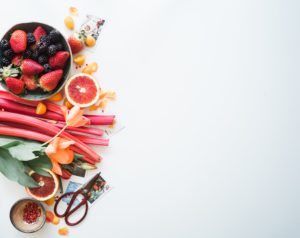 Focus on Immunity Boosters: Fresh and organic is always the better option. Include fruit (citrus, berries, pomegranate), vegetables (capsicum and greens), clean proteins and cooked grains.
Focus on Immunity Boosters: Fresh and organic is always the better option. Include fruit (citrus, berries, pomegranate), vegetables (capsicum and greens), clean proteins and cooked grains.
One of the most powerful ways you can revolutionize your health is by juicing raw vegetables and fruits. This is an awesome way to give the cells in your body the most concentrated, live, bioavailable nutrients and antioxidants available — nutrition required by your immune system. Make sure leafy green vegetables are a foundation in each recipe as they are a great source of vitamin C, a much-needed antioxidant and nutrient that supports immune health.
Avoid Immunity Taxers: processed foods including cereals, breads, sugar, fats, and dairy.
For Macro nutrition I focus on:
-
Lots of Fresh Organic Garlic.
This superfood has very strong antimicrobial and antiviral properties6. The potent sulfur compound allicin in garlic is known to help treat serious GI infections such as SIBO (small-intestinal bacterial overgrowth) and potentially kill parasites and yeast infections.
At the first sign of an infection, start taking one raw garlic clove daily, or use concentrated allicin extract.
Use it raw in dips or use it only partially cooked with meals – meaning add it towards the end of your cooking.
-
Fresh Organic Ginger in Smoothies or Tea with Manuka Honey.
Ginger contains gingerol, a substance with powerful medicinal properties. It belongs to the Zingiberaceae family and is closely related to turmeric, cardamom, and galangal which are all fabulous superfoods. If you can get your hands on them – try them! Gingerol is the main bioactive compound in ginger, responsible for much of its medicinal properties. It has powerful anti-inflammatory and antioxidant effects.7
Quite a bit of research also exists on the benefits of honey as a natural immune booster, natural anti-inflammatory agent, and antimicrobial agent.8 Manuka honey in particular—native to New Zealand and Australia—is even registered as a wound-care product in those countries.
-
Fresh Thyme from the Garden in Smoothies or Added to Meals Before Serving.
Thyme is packed with vitamin C and is also a good source of vitamin A. If you feel a cold coming on, thyme can help get you back in good health.9 Another health benefit of thyme: it’s a good source of copper, fiber, iron, and manganese.
-
Black Seed Oil in Smoothies
The secret to black seed oil’s therapeutic powers may lie in its arsenal of phytochemicals. These naturally occurring compounds include:
-
- Thymoquinone, which has antioxidant and anti-inflammatory properties.
- Thymohydroquinone, which naturally inhibits acetylcholinesterase, an enzyme that breaks down certain neurotransmitters. Physicians use pharmaceutical acetylcholinesterase for neurological diseases, and scientists are studying thymohydroquinone as a natural alternative.10
- Thymol, which is naturally antibacterial and antifungal.
Black cumin seed oil contains other active chemicals, including alkaloids, saponins, and fatty acids, such as linoleic acid and oleic acid, as well as nutrients like folate, calcium, iron, copper, zinc, phosphorus, proteins, and essential amino acids.
-
Oregano Oil over Salads or Taken Orally.
I have recently added Oregano Oil into our health regime. This oil has a long history of being used and an antimicrobial, antiviral, and antifungal.11 The oil contains compounds called phenols, terpenes and terpenoids, which have powerful antioxidant properties and are responsible for its fragrance:
Carvacrol: The most abundant phenol in oregano oil. It has been shown to stop the growth of several different types of bacteria.12
Thymol: A natural antifungal that can also support the immune system and protect against toxins.13
Rosmarinic acid: A powerful antioxidant that helps protect against damage caused by free radicals.
These compounds are thought to underlie oregano’s many health benefits.
-
Vitamin D Rich Foods – salmon, sardines and egg yolks. See below for health benefits.
-
Some Milk Kefir in smoothies.
-
Fermented foods such as miso, kimchi, sauerkraut or kefir served as a side.
-
Bone Broth added to meals or as tea. See our Bone Broth E-book jock full of health benefits and nutritious recipes.
-
Small portions of Organic Liver added to one meal at least once a week. More if needed. See our blog for health benefits.
-
Reishi, Maitake and Shiitake mushrooms added to meals or if I have as loose powders mixed into a hot chocolate beverage. See our blog for health benefits.
-
Apple Cider Vinegar(ACV) – Mixing APV with purified water is a helpful tonic for supporting your immune system. Raw ACV is loaded with enzymes and beneficial bacteria that promote intestinal balance. ACV also helps to balance your body’s pH and transition it into a more alkaline state – which is absolutely crucial for a healthy immune system response. Make an ACV tea to sip and/or gargle. Use 2 tablespoons ACV, 1-2 tablespoons honey (to taste), lemon juice (again, to taste) and a little hot water to dilute. It’s potent but the stronger it is, the faster it will work (of course you can change the amounts of everything to your liking). Use it 3-4 times a day (less is ok too but the more you do it, the better the results).
-
Turmeric – A yellowish spice popular in Indian dishes, turmeric has a number of proven health benefits for the human body. It’s high in antioxidants to protect immune cells from free radical damage. In addition, the active ingredient in turmeric — curcumin — may be responsible for supporting the action of T cells, B cells, and natural killer cells.14
This immunomodulatory effect seems to provide support for the body against a wide range of viruses, fungi, and pathogenic bacteria. Add one-half to one teaspoon of turmeric to your meals, or take a high-quality turmeric supplement to provide further nutritional support.
-
Clove Oil – Research confirms that the essential oil “clove oil” has antimicrobial and antioxidant properties. Try putting it in a vaporiser, oil burner or mist spray bottle.15
4. MICRO NUTRITION
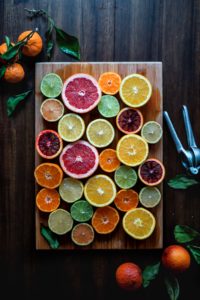 For Micronutrition at any one time, I’ll focus on some of the following supplements (it varies): My go-to’s most days for the boys are: Vitamin C, zinc, vitamin D, probiotics, and activated B vitamins.
For Micronutrition at any one time, I’ll focus on some of the following supplements (it varies): My go-to’s most days for the boys are: Vitamin C, zinc, vitamin D, probiotics, and activated B vitamins.
Vitamin C helps with immune system function and boosts white blood cells. Research shows that vitamin C has shortened the duration of colds and can decrease the number of colds in physically active people.16
Organic citrus fruits and whole fruits, in general, are ideal sometimes it’s hard to attain enough vitamin C this way though. Take 1,000 milligrams of vitamin C daily to ward off a cold or the flu and up to 4,000 milligrams daily when you are experiencing symptoms.
Vitamin D is produced in the body by sunlight and regulates the expression of over 2,000 genes, including those of the immune system. Vitamin D deficiency has been directly linked to a compromised immune system.17Unfortunately, up to 90 percent of people are deficient in vitamin D. Recent research shows that low vitamin D levels are linked to higher rates of cold, flu and respiratory infections.
Many physicians believe that current recommended daily amounts of vitamin D are far too low and that 2,000 units rather than 200–400 units per day is a better choice. You can also order home testing kits to test your vitamin D levels.
Zinc supports immune function and has an antiviral effect.18 It works best when taken at the first sign of illness. Zinc may lessen the symptoms of the cold virus, but excessive amounts aren’t good for you.
Probiotics will promote healthy intestinal bacteria, which helps produce virus-fighting antibodies and aids in vitamin absorption. Considering that 70 percent of your immune system resides in your gut, maintaining a balance of probiotic bacteria is essential for nurturing your immune defenses.19
You can get your probiotics by supplement or by eating probiotic-rich foods such as miso, kimchi, sauerkraut or kefir.
If you are looking for a great probiotic, here is my favorite.
5. FRESH AIR, SUNSHINE AND EXERCISE
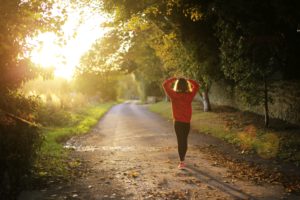 Immune cells are favourably affected by vitamin D levels, and natural sunlight is the best source of natural vitamin D. Your body needs vitamin D to activate pathogen fighting T-cells. In fact, vitamin D deficiency is associated with increased frequency of infection as well as autoimmune disease.
Immune cells are favourably affected by vitamin D levels, and natural sunlight is the best source of natural vitamin D. Your body needs vitamin D to activate pathogen fighting T-cells. In fact, vitamin D deficiency is associated with increased frequency of infection as well as autoimmune disease.
Try some sunscreen-free exposure for 20 minutes between 8 am and 10 am or between 4 pm and 6 pm when the sun isn’t too harsh. And lose those sunglasses, because a great way to synthesize vitamin D is through your eyes.
Beyond the obvious cardiovascular, mood, and weight management benefits of regular exercise, moderate physical activity can improve our antibody response to infections. It’s important not to overtrain; however, as chronic strenuous exercise without recovery days has been associated with increased susceptibility to infections, as well as the frequency of injury.
6. HYDRATION
 Staying hydrated is key for producing lymph, which the colourless fluid that carries white blood cells, immune cells, and nutrients around the body to remove harmful pathogens and waste product build-up in the tissues. (Think of the lymphatic system like your body’s drainage system.) When you’re dehydrated, your lymph can have difficulty flowing and your tissues can get backed up with bacteria, setting the stage for a weakened immune system.
Staying hydrated is key for producing lymph, which the colourless fluid that carries white blood cells, immune cells, and nutrients around the body to remove harmful pathogens and waste product build-up in the tissues. (Think of the lymphatic system like your body’s drainage system.) When you’re dehydrated, your lymph can have difficulty flowing and your tissues can get backed up with bacteria, setting the stage for a weakened immune system.
7. STRESSORS
Stressors can be physical, chemical or emotional.
Physical stress can be sitting for too long at digital equipment, poor sleeping posture, to heavy a school bag, and physical knocks and falls.
Chemical stress can be too much sugar in the diet which depletes our immune system, too many additives, and colourings. 5G is also a chemical stress as are household cleaning products.
 Chronic stress or emotional stress also suppresses our immune response by releasing the hormone cortisol. Cortisol interferes with the ability of specific white blood cells called T-cells to proliferate and get signals from the body. In addition, cortisol also lowers an important antibody called secretory IgA, which lines the respiratory tract and gut and is our first line of defence against invading pathogens. Try to wrangle your stress.
Chronic stress or emotional stress also suppresses our immune response by releasing the hormone cortisol. Cortisol interferes with the ability of specific white blood cells called T-cells to proliferate and get signals from the body. In addition, cortisol also lowers an important antibody called secretory IgA, which lines the respiratory tract and gut and is our first line of defence against invading pathogens. Try to wrangle your stress.
Regularly schedule a reflexology foot massage, making time for a yoga class, or going on a 30-minute walk. Model these behaviours so your kids learn how to keep stress in context of a life well-lived.
Please Note!
Seeing’s as both I and the Chiropractic profession in general, have come under much scrutiny and bullying (it is what it is) from the Friends of Science in Medicine over the last few years, I will save time by stating that Chiropractic is not a cure-all for any health condition.
That is not what I am suggesting or conveying.
True health comes from the nervous system, gut and immune system maintaining intricate communication and efficient feedback.
For interest sake, chiropractic is the largest natural health care profession in the world (doesn’t take a mental giant to see why we’ve been hit so hard). It also has a building body of ethical research that is not funded by big pharma. I’m not sure mainstream medicine with its mountain of research, can make that claim.
References and Resources:
1.Neil J. Manipulative therapy and immune response: A literature review of the chiropractic and osteopathic evidence. Clinical Chiropractic 2012; 15(3): 186.
2.Haavik, H. and Murphy, B. 2007. Cervical spine Manipulationalters sensorimotor integration: A somatosensory evoked potential study. Clin Neurophysiol. 2007;118(2): 391-402.
3.Julita A Teodorczyk-Injeyan, Marion McGregor, et al: Interleukin 2-regulated in vitro antibody production following a single spinal manipulative treatment in normal subjects. Chiropractic & Osteopathy volume 18, Article number: 26 (2010)
4. NF Watson, MD et al. Transcriptional Signatures of Sleep Duration Discordance in Monozygotic Twins. Sleep. 2017 Jan 1; 40(1): zsw019.
5.Krzysztof Krysta, Marek Krzystanek et al. Sleep and inflammatory markers in different psychiatric disorders. J Neural Transm (Vienna). 2017; 124(Suppl 1): 179–186.
6.Leyla Bayan, et al.Garlic: a review of potential therapeutic effects. Avicenna J Phytomed. 2014 Jan-Feb; 4(1): 1–14.
7. Wang S, Zhang C, Yang G, Yang Y. Biological properties of 6-gingerol: a brief review. Nat Prod Commun. 2014 Jul;9(7):1027-30.
8. Bardy J1, Molassiotis A, Ryder WD, A double-blind, placebo-controlled, randomised trial of active manuka honey and standard oral care for radiation-induced oral mucositis. J Altern Complement Med. 2010 Jul;16(7):787-93.
Bardy J. et al. A double-blind, placebo-controlled, randomised trial of active manuka honey and standard oral care for radiation-induced oral mucositis. Br J Oral Maxillofac Surg. 2012 Apr;50(3):221-6. doi: 10.1016/j.bjoms.2011.03.005. Epub 2011 Jun 1.
10. Kemmerich B1, Eberhardt R, Stammer H. Efficacy and tolerability of a fluid extract combination of thyme herb and ivy leaves and matched placebo in adults suffering from acute bronchitis with productive cough. A prospective, double-blind, placebo-controlled clinical trial. Arzneimittelforschung. 2006;56(9):652-60.
11. Jukic M, et al. “In vitro acetylcholinesterase inhibitory properties of thymol, carvacrol and their derivatives thymoquinone and thymohydroquinone.” Phytother Res. 2007 Mar;21(3):259-61.
12. Hodkinson CF, Simpson EE, Beattle JH, et al. Preliminary evidence of immune function modulation by thyroid hormones in healthy men and women aged 55-70 years. J Endocrinol. 2009 Jul;202(1):55-63. doi: 10.1677/JOE-08-0488.
13. Gholamnezhad Z, et al. “Effect of Nigella sativa on immune response in treadmill exercised rat.” BMC Complement Altern Med. 2014; 14: 437.
14.Jagetia GC, Aggarwal BB. “Spicing up” of the immune system by curcumin. J clin Immunol. 2007 Jan;27(1):19-35.
15. Yoshihiro Inoue. The antibacterial effects of terpene alcohols on Staphylococcus aureus and their mode of action. FEMS Microbiology Letters.Volume 237, Issue 2, 15 August 2004, Pages 325-331
Radünz M1, da Trindade MLM2, Camargo TM3, Radünz AL4, Borges CD5, Gandra EA5, Helbig E2. Antimicrobial and antioxidant activity of unencapsulated and encapsulated clove (Syzygium aromaticum, L.) essential oil. Food Chem. 2019 Mar 15;276:180-186. doi: 10.1016/j.foodchem.2018.09.173. Epub 2018 Oct 4.
16.Bakaev VV1, Duntau AP. Ascorbic acid in blood serum of patients with pulmonary tuberculosis and pneumonia. Int J Tuberc Lung Dis. 2004 Feb;8(2):263-6.
17. Aranow C. Vitamin D and the immune system. J Investig Med. 2011 Aug;59(6):881-6. doi: 10.231/JIM.0b013e31821b8755.
Urashima M1, Segawa T, Okazaki M, Kurihara M, Wada Y, Ida H.Randomized trial of vitamin D supplementation to prevent seasonal influenza A in schoolchildren. Am J Clin Nutr. 2010 May;91(5):1255-60. doi: 10.3945/ajcn.2009.29094. Epub 2010 Mar 10.
18. Hemilä H1.Zinc lozenges and the common cold: a meta-analysis comparing zinc acetate and zinc gluconate, and the role of zinc dosage. JRSM Open. 2017 May 2;8(5):2054270417694291. doi: 10.1177/2054270417694291. eCollection 2017 May.
Haase H, Rink L. The immune system and the impact of zinc during aging. Immun Ageing. 2009;6:9. Published 2009 Jun 12. doi:10.1186/1742-4933-6-9
19. Macfarlane GT, Cummings JH. Probiotics and prebiotics: can regulating the activities of intestinal bacteria benefit health? BMJ. 1999 Apr 10;318(7189):999-1003. Review.
Teemu Taipale, Kaisu Pienihäkkinen, Erika Isolauri, Charlotte Larsen, Elke Brockmann, Pentti Alanen, Jorma Jokela, Eva Söderling. Bifidobacterium animalis subsp. lactis BB-12 in reducing the risk of infections in infancy. British Journal of Nutrition. 2011 February. vol. 105 issue 03, 409-416 doi:10.1017/S0007114510003685.


